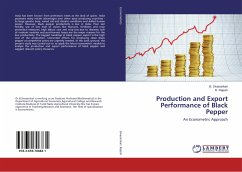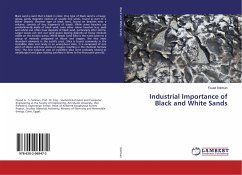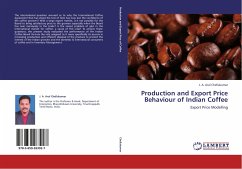India has been known from prehistoric times as the land of spices. India possesses many innate advantages over other spice producing countries - its large genetic base, varied soil and climatic conditions and skilled human power. However, black pepper productivity is low in India. Poor soil fertility, use of low level of inputs like manures, fertilizers and crop protection measures, high labour cost and crop loss due to diseases, lack of resistant varieties and post-harvest losses are the major reasons for the low productivity. The biggest handicap in black pepper export is the high cost of the production. Concerted efforts for producing clean black pepper at competitive prices are urgently needed. In this back ground, the present study was carried out to to apply the latest econometric models to analyse the production and export performance of black pepper and suggest relevant policy measures.
Bitte wählen Sie Ihr Anliegen aus.
Rechnungen
Retourenschein anfordern
Bestellstatus
Storno








